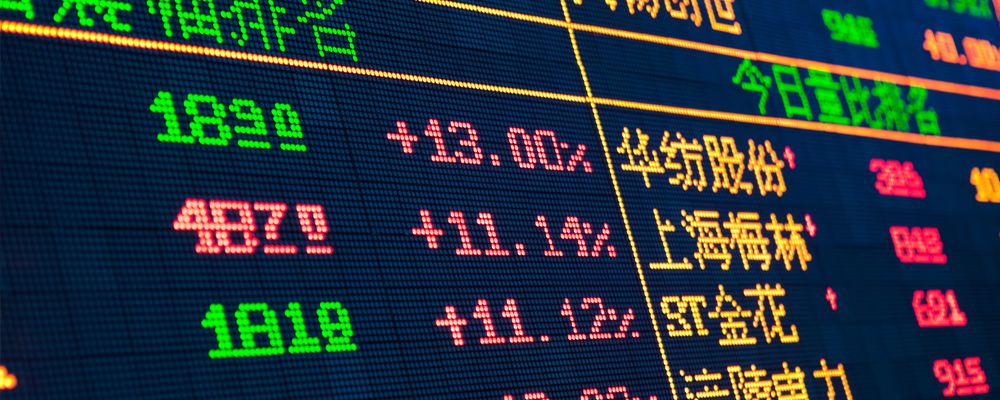Domestic Consumption is the Core Investment Case
- Saturday, April 15, 2017
 Investors have spent many years wondering why fast economic growth in China was not reflected in strong investment returns. Now, they are wondering how slower economic growth can generate such attractive investment returns.
Investors have spent many years wondering why fast economic growth in China was not reflected in strong investment returns. Now, they are wondering how slower economic growth can generate such attractive investment returns.
President Xi Jinping is reforming the economy and turning away from debt funded infrastructure investment to boost growth. A continuation of the 2014 objectives of reform and deleverage will be continued in 2015. We expect China’s leaders to manage a slower rate of growth persisting in the future.
Lower growth makes the operating environment more competitive for many businesses. The best companies, those with higher margins, bigger cash flows, stronger balance sheets and superior management, are using these tighter times to gain a competitive advantage. Businesses with low debt and better operating efficiencies are investing in new products and efficiency gains offering investors attractive growth.
The rise in domestic consumption is the core investment case. With wages and incomes rising, social change and urbanisation is driving a multi-year increase in consumer activity. China is the world’s largest importer of oil and therefore should be a net beneficiary of lower energy prices.
The People’s Bank of China has reduced its interest rate by 0.25% to a lending rate of 5.1% and a deposit rate of 2.25%. This is the third such reduction in six months following some disappointing results showing weaker than expected exports and foreign trade. Foreign trade fell by 10.9% on a year on year basis as rising labour costs and a relatively strong currency squeezed manufacturing and exports. These rate reductions are therefore aimed at incentivising spending by making it less attractive to leave money in the bank and encouraging business to invest by cutting lending costs.
The data reinforced expectations that China will see its worst annual performance in 25 years. The IMF predict that China’s GDP will grow this year at “only” 6.8%, down from 7.4% last year and greatly reduced from 14.2% in 2007. But, this is a different China and one starting to steer a different course. Government reforms are helping the country transfer itself from an investment and export lead economy to one focused on sustainable but slower domestic consumption lead growth. Economists will agree that 6.8% is still, in global terms, a very attractive growth rate.
‘The volume of trading on China’s major exchange has some days reached US$140bn’
Since the start of the year the Chinese stock market, the Shanghai Index, has risen 37% and its sister index, the Shenzhen is up 53%. Over the past two years the two markets have risen by 122% and 96% respectively. The volume of trading on China’s main stock exchange has reached US$140bn on a number of days this year. This is four times greater than Wall St. There are 100 million investment accounts in Shanghai as rapid economic growth over the past decade has created a burgeoning middle class wishing to enter equity markets.
From 2011 to 2014 the Chinese stock market hardly moved in value compared to China’s economic growth. The main reason being the difficulty foreign investment used to have in participating in China’s semi-closed stock market and the preference Chinese people had for investing in homes and property. This sector is now in decline as an asset class due to oversupply and higher credit controls on mortgages. The Chinese stock market took off when the property bubble burst.
It would be natural to be concerned that with these growth rates the Chinese equity market itself may be heading for a bubble. P/E ratios are currently up to 20 times earnings which is internationally high but still well below the 40 times earnings of 2007. Some sections of the Chinese stock market do qualify for
the generally accepted definition of a bubble and are being driven by herd instincts and momentum. We are therefore cautious.
The prices of new homes in China fell for the ninth consecutive month in May showing that the property sector continues to be a major drag on the world’s second largest economy. Average house prices in China’s 70 major cities fell by 6.1% so far this year with a very large inventory of unsold property weighing on the market. The property sector accounts for about 20% of China’s economy and is now considered one of China’s biggest risks to economic growth. The recent rate reductions may help stimulate demand but some economists are calling for a much bigger rate reduction to at least 2% in order to recover demand.
There have been reports that China is about to start its own QE programme but in reality this amounts to the People’s Bank of China buying local government bonds only. This is targeted financial assistance to revenue squeezed local government. The property turn down has affected local government bond take up rates. China does not need Western style QE as overall monetary policy is fairly tight with interest rates at 2.25%. There is still plenty of room to cut rates before QE.
China plans to establish a US$166bn gold fund in order to stock pile the precious metal. The news of the fund made up of bullion, Gold ETF’s and investments in gold mining companies could restore some impetus to the gold market that has been struggling to offset the strength of the US$. Gold has fallen below the psychologically important US$ 1200 per ounce as traders took note of the Federal Reserve’s intention to increase the Fed Funds rate later this year.

Chris Davies
Chartered Financial AdviserChris is a Chartered Independent Financial Adviser and leads the investment team.
About Estate Capital
Financial Services
Our Contacts
7 Uplands Crescent,
Swansea, South Wales,
SA2 0PA.
Tel: 01792 477763
